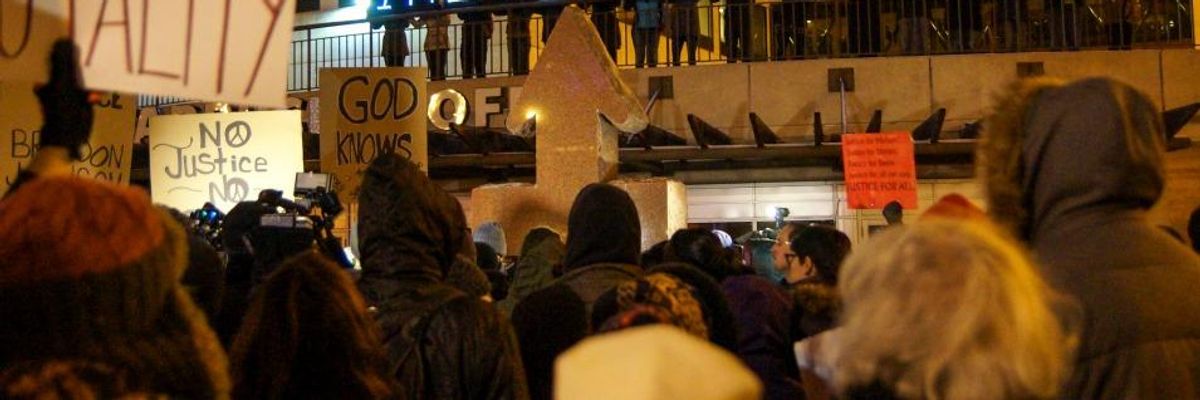A member of the St. Louis grand jury that did not indict police officer Darren Wilson in the shooting death of Michael Brown filed a lawsuit on Monday challenging the court gag order, arguing that prosecuting attorney Robert McCulloch has not accurately portrayed the grand jury trial and that his experience could "help inform a way forward."
The American Civil Liberties Union, which is representing the juror referred to as "John Doe," issued a statement saying that the individual "would like to talk about the experience of serving on a grand jury, the evidence presented and the investigation in a way that could contribute to the public dialogue concerning race relations."
Without permission from a court, it is a crime for grand jurors to discuss their service. In the suit, Doe says he is "chilled" from expressing his views on the experience and cites a Missouri state statute which says that a juror could be charged with a class A misdemeanor if found guilty of disclosing details of a grand jury trial. McCulloch is named as a defendant since he would be the person to bring charges against Doe.
According to the suit (pdf), filed in the Eastern District of Missouri U.S. District Court, the experience of the grand jury was not honestly portrayed by McCulloch to the public, despite his claims regarding the "transparency" of the case.
Doe charges that "the investigation had a stronger focus on the victim than in other cases presented to the grand jury" and that "the presentation of the law to which the grand jurors were to apply the facts was made in a muddled and untimely manner."
Further, citing evidence made public following the trial and McCulloch's press conference announcing the grand jury decision--which sparked widespread protests and outrage--the lawsuit says that McCulloch's "statement characterizes the views of the grand jurors collectively toward the evidence, witnesses and the law in a manner that does not comport with plaintiff's own opinions." Doe adds that "although the release of a large number of records provides an appearance of transparency, those records do not fully portray the proceedings before the grand jury."
The lawsuit continues:
Plaintiff would like to speak about the experience of being a grand juror, including expressing Plaintiff's opinions about the evidence and the investigation, and believes Plaintiff's experience could contribute to the current public dialogue concerning race relations. In Plaintiff's view, the current information available about the grand jurors ' views is not entirely accurate--especially the implication that all grand jurors believed that there was no support for any charges. Moreover, the public characterization of the grand jurors' view of witnesses and evidence does not accord with Plaintiff's own. Plaintiff also wishes to express opinions about: whether the release of records has truly provided transparency; Plaintiff's impression that evidence was presented differently than in other cases, with the insinuation that Brown, not Wilson, was the wrongdoer; and questions about whether the grand jury was clearly counseled on the law.
In contrast to the portrayal of the grand jury's decision to not indict Wilson as unanimous, the suit points out that Missouri law requires that in fact nine out of twelve grand jurors must agree in order to issue an indictment.
According to the Plaintiff's attorney's, the Supreme Court has said that grand jury secrecy must be weighed against the juror's First Amendment rights on a case-by-case basis. "The rules of secrecy must yield because this is a highly unusual circumstance," said Tony Rothert, legal director of the ACLU of Missouri. "The First Amendment prevents the state from imposing a life-time gag order in cases where the prosecuting attorney has purported to be transparent."
"Grand Juror Doe's perspective can and should help inform a way forward here in Missouri," added Jeffrey Mittman, executive director of the ACLU of Missouri. "The ACLU will fight to allow this important voice to be heard by the public and lawmakers so that we can begin the healing process that can only result from fact-based reforms."
By disclosing his experience, Doe hopes he might serve as an advocate for making legislative changes to the way grand juries are conducted in the state and bolster public debate about the proper role of state grand juries.

